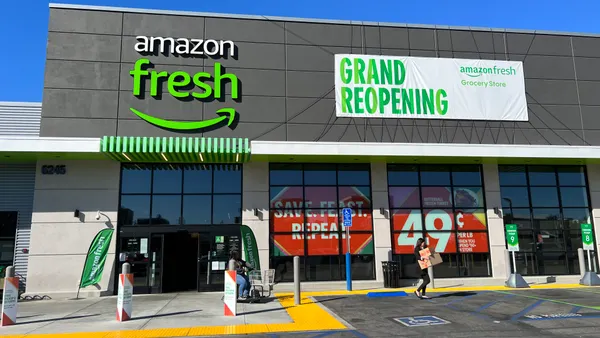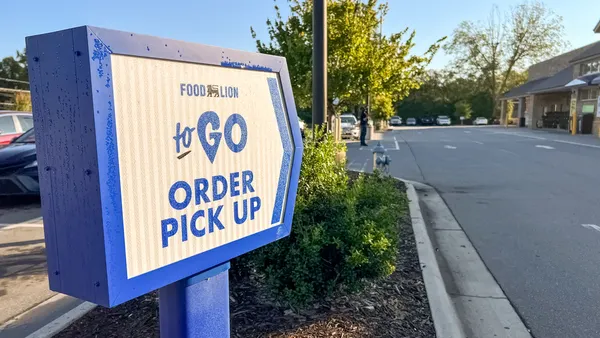Dive Brief:
- Marketing and promotions on online grocery platforms are undermining Americans’ efforts to eat healthier, according to new research from nonprofit group Center for Science in the Public Interest (CSPI).
- The health watchdog group evaluated promotional data and pricing from six national retailers in the Washington, D.C. metro area including Amazon Prime Now, FreshDirect, Peapod, Safeway, Target and Walmart. The evaluation focused on five staple foods: milk, bread, cereal, drinks and chicken.
- Among the findings, FreshDirect had the lowest proportion of unhealthy product promotions at 29%, while Safeway had the highest at 72%. Target had the most unhealthy foods appearing in search results, at 73%.
Dive Insight:
Across all retailers evaluated, CSPI said more than half (51%) of the promotions they saw among staple food and beverages were unhealthy, and 58% of products appearing prominently in search results were unhealthy. When looking at email promotions, 76% contained promotions for unhealthy products.
Among the unhealthy marketing the group refers to, an ad for milk and cookies appears above the search result for milk on Peapod’s website. In another instance, top search results for chicken on Target’s website included chicken patties and nuggets rather than fresh chicken.
At the same time, online grocery offers the opportunity for shoppers to access healthier food. With online search capabilities and a full inventory of produce, fresh foods and better-for-you options, many retailers are in a position to support healthy eating habits through e-commerce. CSPI noted online grocery also improves healthy food access for people in food deserts, and that online shopping can reduce unhealthy impulse purchases.
CSPI also evaluated the quality of produce delivered from each retailer and found that most of the fruits and vegetables were of good quality and color, had few soft spots and firm skin.
Marketing and promotional dollars from CPG companies have long influenced retail ads and promotions as grocers use them as a source of revenue. However, many retailers today are complementing such programs with their own health and wellness initiatives to educate consumers and better equip them with the knowledge they need to make healthy decisions.
Additionally, retailers have a choice in which companies they collaborate with on promotions. For example, one promotion CSPI found was a banner ad for Chobani, which is considered a healthier brand. Several grocers offer suggestions and search results based on past purchase history, meaning the more healthy products a customer buys, the more likely they are to get promotions or suggestions for good-for-you products.













